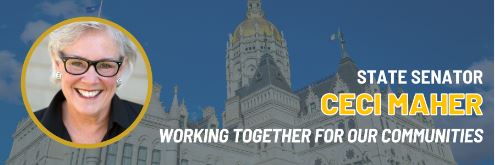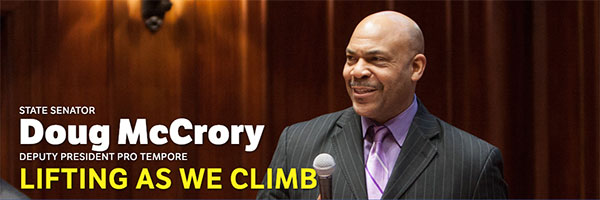Sen. Cohen, Rep. Rader Welcome Final Passage of Bill to Enhance Katie Beckett Waiver Program
HARTFORD – Early Friday morning the state senate voted for the unanimous passage of legislation implementing the recommendations of the Katie Beckett Working Group, ensuring families of terminally ill children are better served by the program. State Senator Christine Cohen and State Representative Moira Rader worked closely with constituents, the Negron family, to develop these important recommendations.
The Katie Beckett Waiver program is administered by the Department of Social Services (DSS), and provides Medicaid healthcare services and supports to individuals 21 years of age and younger with a physical disability who may or may not have a co-occurring developmental disability. These services are for young adults and children who would normally not qualify for Medicaid due to family income. The purpose of the waiver is to provide home and community-based services to individuals who would prefer to reside in their home or in the community instead of an alternative institution.
Unfortunately, Connecticut is the only state in New England with a cap on the number of qualified individuals accepted into the Katie Beckett Waiver program. The way the waitlist is structured leaves some families on a waiting list longer than the child’s life expectancy.
This legislation to improve the waiver program came from the advocacy of Chloe Negron’s family. Chloe was a Guilford girl diagnosed with Tay-Sachs, a rare genetic disorder. Chloe tragically passed away earlier this year from complications of the disease. Last year, Sen. Cohen and Rep. Rader testified along with her father, David, before the Human Services Committee on the need to improve the program. He later served on the Katie Beckett Working Group to develop the recommendations implemented in this legislation.
The legislation passed requires DSS to develop a five-year plan to eliminate the waiting list for the Katie Beckett Waiver Program and add home modification coverage, as well as report to the Appropriations and Human Services Committee their recommendations on state appropriations needed to implement the plan. According to DSS, 331 people are currently on the waitlist which currently equates to many years.
Additionally, the bill lowers the maximum age for Katie Beckett participants from 21 to 18.
The bill also requires the DSS commissioner to include information on eligibility criteria and provider reimbursement rates for the waiver program in its Medicaid provider bulletins and to post certain information on the website.
Lastly, the bill requires DSS to annually administer a survey, via mail or e-mail, to applicants on the program’s waiting list, asking applicants to confirm or update demographic information and whether they wish to remain on the waiting list. Applicants who do not respond must remain on the waiting list.
“My heart is with every family whose child faces a terminal illness, and I have deep respect for David and Rennie’s strength and the love for their daughter that has guided this legislation,” said Sen. Cohen. “Chloe’s legacy lives on through the power of advocacy and public policy and because of this legislation, other Connecticut families will be better served by this program. I am hopeful that with these recommendations, every child, regardless of diagnosis, has access to the care they need.”
“This legislation holds deep significance, particularly for the Guilford community. It was inspired by the Negron Family and their beloved daughter, Chloe, whose strength and light touched everyone who knew her,” said Rep. Rader. “Although Chloe tragically passed away this past year, her legacy lives on through this work. In her memory, we are building a more compassionate and responsive system that will help countless children and families for years to come.”









